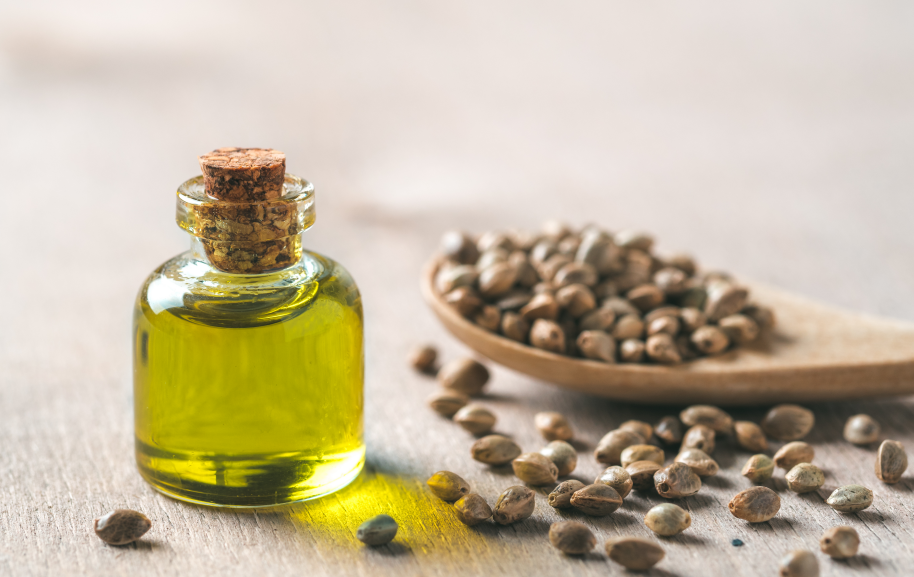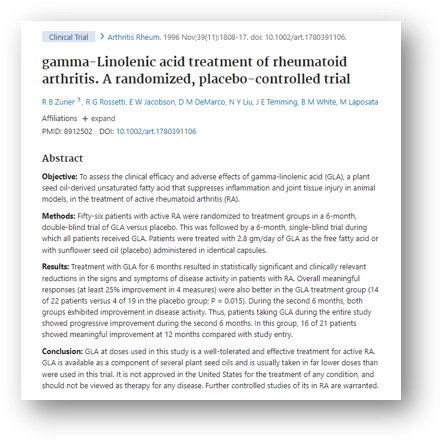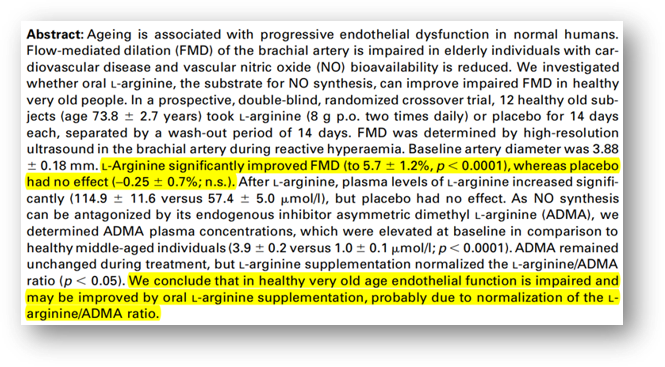Pharmacist who reads papers
3 reasons why hemp seed oil is a healthy food
inflammation

Hello. I'm a pharmacist Jinny. Hemp seed oil has recently become popular as a health food. Usually, when we think of hemp, we think of drugs, so many people seem to wonder how hemp seed oil can be a health food.
Hemp seed oil products that we consume as health foods use a hemp species called 'hemp'. Hemp contains trace amounts of THC, a psychoactive substance that causes hallucinations, so much so that it is safe to say that it is not guilty. Rather, hemp seeds contain omega-3, gamma-linolenic acid, and other unsaturated fatty acids that are beneficial to our body, as well as amino acids including arginine and lysine.
Therefore, hemp seed oil, which is an oil extracted from the seeds of hemp, is rich in these nutrients. Now, along with the paper, I will introduce you to three of the main nutritional components contained in hemp seed oil.



In today's paper, we looked at three of the main nutrients contained in hemp seed oil and the benefits of consuming them. As mentioned in this article, hemp seed oil contains omega-3s, which reduce blood triglyceride levels, gamma-linolenic acid, which improves inflammatory response, and arginine, which normalizes the function of vascular endothelial cells.
There's another reason why hemp seed oil is so special. There is a golden ratio of omega-3 and omega-6. Omega-3 and omega-6 fatty acids change into various forms as needed in the body, and are involved in various regulatory reactions in the body, such as boosting immunity, regulating blood pressure, and synthesizing hormones. Since the same enzymes are used to convert the form, the ratio of the two fatty acids in the body must be balanced rather than too much of one type of fatty acid. For this same reason, The World Health Organization recommends a 1:4 ratio of omega-3 to omega-6. Hemp seed oil contains a 1:3 ratio of omega-3 to omega-6, which helps to balance intake.
However, since more than 90% of the fatty acids in hemp seed oil are made up of unsaturated fatty acids, it is recommended to be careful when consuming more than 3,000mg per day as you may experience side effects such as diarrhea and abdominal pain.
I hope you have a healthy day in body and mind. It was Jinny.
[1] Shidfar, F., Keshavarz, A., Hosseyni, S., Ameri, A., & Yarahmadi, S. (2008). Effects of omega-3 fatty acid supplements on serum lipids, apolipoproteins and malondialdehyde in type 2 diabetes patients. Eastern Mediterranean health journal = La revue de sante de la Mediterranee orientale = al-Majallah al-sihhiyah li-sharq al-mutawassit, 14(2), 305–313.
[2] Zurier, R. B., Rossetti, R. G., Jacobson, E. W., DeMarco, D. M., Liu, N. Y., Temming, J. E., White, B. M., & Laposata, M. (1996). gamma-Linolenic acid treatment of rheumatoid arthritis. A randomized, placebo-controlled trial. Arthritis and rheumatism, 39(11), 1808–1817.
[3] Bode-Böger, S. M., Muke, J., Surdacki, A., Brabant, G., Böger, R. H., & Frölich, J. C. (2003). Oral L-arginine improves endothelial function in healthy individuals older than 70 years. Vascular medicine (London, England), 8(2), 77–81.



![[Glutathione Efficacy] 3 Benefits of Glutathione, the main ingredient of white jade injection](http://esther-mall.com/cdn/shop/articles/b78bea5b2ed070cf888_520x500_ca156e73-4f0c-441e-b3bf-95f733929447.jpg?v=1734621828&width=480)
![[Lactium Benefits] 3 benefits of lactium, from improving sleep quality to relieving stress and depression](http://esther-mall.com/cdn/shop/articles/950064b6f2a61656475_520x500_94b3e952-9aa7-4c60-9d32-ff518d881192.jpg?v=1734621835&width=480)